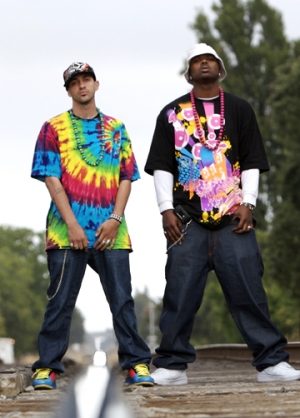Earlier this week, alarm bells were ringing when a quote from Apple in 2007 found its way back to the top of the news heap. That quote? That if royalties were to change to a point of being unprofitable to Apple, it would shut its iTunes store down. Now even the thought of this, among Apple and its competitors, has been brewing frightening thoughts for the consumers for a while due to the fact that virtually all the music these stores sell is DRM protected. Of course, the DRM is built into the song, so what exactly happens if the company selling the songs ends their existence? Well, it looks like the DRM for the material would expire, leaving consumers with hundreds if not thousands of “purchased” songs that will no longer play anywhere. As a music lover (and legal buyer of mp3s), this kind of news, even if it is an undeveloped thought, causes a good deal of frustration. Here the studios want consumers to pay for music, foregoing the option of downloading all the music they want illegally for free, but the copyright protection within the music means that if the retailer goes down, the files go down with it? That’s like buying a CD at Tower which is then erased when Tower goes out of business (you all do still remember Tower, don’t you?)
So what can we do about it when the very mechanism that has allowed music labels to go digital, and therefore the infrastructure that controls all of our legal downloads, is compromised by companies willing to close their DRMs? Unfortunately, not much. Short of burning all of your DRM tracks to a CD and then re-ripping them to mp3s to strip of them of their DRM (and some sound quality in the process), if a store goes down and discontinues its DRM licensing, all the tracks you’ve bought could die on your iPod. This to me seems like the ultimate Trojan horse of the music industry…we don’t want you to have mp3s, but if you do, we’ll create a way so that once they’re in your music library, should the stores you bought them from close, we’ll demolish your entire music collection from the inside.
I understand the purpose of DRM, but unfortunately its just not a viable business model if there are ways to stop the music playback at any point after the purchase. The point of buying music is that you have it forever. All the CDs I bought are still mine and will be mine for as long as I manage not to lose or damage them. The idea that you could buy a song which at some point in the future becomes unusable is, to me at least, outrageous.
The reason that all of this has come about this week is because the Copyright Royalty Board (CRB) was weighing a decision to raise the artist royalties on digital downloads from 9.1 cents per song to 15 cents a song. From what I can ascertain from the article announcing the steady royalty fees, a .99 cent iTunes song is sold like this…
1) Apple sells the song for .99. 2) Apple keeps .29. 3) Apple gives .70 to the record label. 4) Record label gives the artist 9.1 cents, keeping 60.9 cents. I don’t know about you, but even at 9 cents a song, it seems like the labels and iTunes are getting over on the artist. Are we really supposed to believe that the iTunes store deserves to keep almost three times as much money for a song it sells than the artist receives?
What this scare does do is make it painfully obvious that the record labels and online music stores need to create a way and find a method to allow consumers to legally retain their music, no matter what happens to the store you buy it from. Should royalty rights eventually be raised in favor of the artist, it would be a travesty for Apple to claim it can no longer operate iTunes profitably (with the number of sales they have per year and the fact that they’re getting money just to be a middle man, it would be very hard for me to accept the idea that they aren’t profitable), disable the DRMs and leave music consumers with a bunch of dead and unusable files. Apple needs to show a little more foresight and decency when it comes to wolf cries of lost profits with a change from 9.1 to 15 cents of royalty. This could have been Apple simply playing politics in order to protect its profit margin, but even then the greed factor, given what the artists out there are making, comes into play.
For now (the CRB’s decision lasts 5 years), it appears we can rest easy. But it makes it clear that more thorough examinations of the digital music sales industry, DRM technology and what the rules and technology mean to consumers are necessary and should not be ignored.






